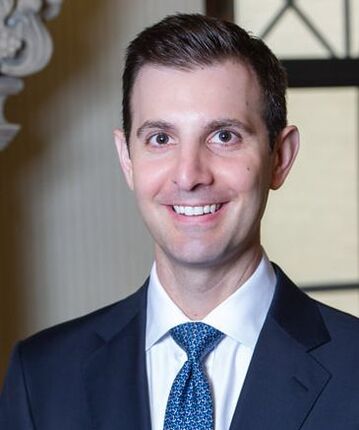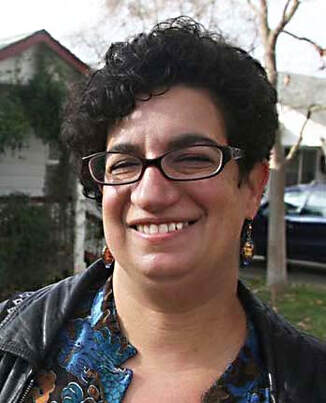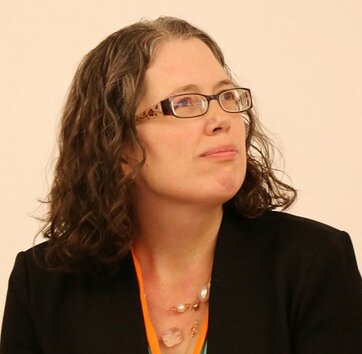Universities exist primarily to educate students and to conduct research for the public good. We believe that the exchange between students and faculty is vital to the university’s education and research missions. This is true for all faculty and for all students, regardless of whether faculty are full-time or part-time, tenured or non-tenured. It is true regardless of the university’s size and age or the number and newness of its facilities. We claim the primacy and inseparability of teaching and research, and thus the primary value of the people who carry out this work. We are faculty of all ranks at the University of Pittsburgh. The University works because we do.
We are committed to working together for equity, job security, transparency, and workplace democracy. These values have been undermined by precarious employment, top-down decision-making, and policies that compromise the University’s core missions of teaching and research. Part-time faculty are paid poverty wages for contracts that terminate every semester. Full-time non-tenure stream faculty shoulder an increasingly disproportionate administrative burden. Tenured and tenure-track faculty are subject to constantly increasing research expectations. Entire departments—Classics, Religious Studies, and German—have received notice of their graduate programs’ suspension or closure with no consultation or effective recourse.
All of us share a lack of voice. When faculty experience unfair or discriminatory treatment, we have no access to an independent process through which to address it. Faculty across the University of Pittsburgh are told that to save our profession, we must make fundamental changes in how we work, but few of us have any meaningful say in what these changes should be or how they will be carried out.
We call for a union across all faculty ranks and campuses at the University of Pittsburgh. Our union will be a powerful means to achieve the core goals of equity, job security, transparency, and workplace democracy by acting collectively against precarious employment, and for the inclusion and empowerment of all people who work for the University of Pittsburgh, including people of color, women, LGBTQ* people, indigenous people, poor people, and people with disabilities.
Together, we can shape a more open and democratic future for education at the University of Pittsburgh, a future where faculty labor is valued and protected, and where all of us receive resources to create new knowledge and teach our students. We invite all faculty to join us in working for this future.
We are committed to working together for equity, job security, transparency, and workplace democracy. These values have been undermined by precarious employment, top-down decision-making, and policies that compromise the University’s core missions of teaching and research. Part-time faculty are paid poverty wages for contracts that terminate every semester. Full-time non-tenure stream faculty shoulder an increasingly disproportionate administrative burden. Tenured and tenure-track faculty are subject to constantly increasing research expectations. Entire departments—Classics, Religious Studies, and German—have received notice of their graduate programs’ suspension or closure with no consultation or effective recourse.
All of us share a lack of voice. When faculty experience unfair or discriminatory treatment, we have no access to an independent process through which to address it. Faculty across the University of Pittsburgh are told that to save our profession, we must make fundamental changes in how we work, but few of us have any meaningful say in what these changes should be or how they will be carried out.
We call for a union across all faculty ranks and campuses at the University of Pittsburgh. Our union will be a powerful means to achieve the core goals of equity, job security, transparency, and workplace democracy by acting collectively against precarious employment, and for the inclusion and empowerment of all people who work for the University of Pittsburgh, including people of color, women, LGBTQ* people, indigenous people, poor people, and people with disabilities.
Together, we can shape a more open and democratic future for education at the University of Pittsburgh, a future where faculty labor is valued and protected, and where all of us receive resources to create new knowledge and teach our students. We invite all faculty to join us in working for this future.
Can we imagine what our lives would be without unions? The five-day work week, child labor laws, employer-based healthcare coverage, FMLA… these are just a few of the many things that unionized workers have done to make our way of life better and of what can be achieved when workers collaborate.
We keep hearing about how “unprecedented” these times are. The one thing we all are certain of right now is that we have no idea what is to come or how much worse things will get before they get better. If this is such an unprecedented time, why is the administration acting like everything is business-as-usual? Why is our “input” limited to emailed surveys and poorly-attended town halls?
This should be a time in which we all work together to come up with solutions. The folks teaching understand better than anyone does what it takes to run successful classes in this environment. We should be collaborating with upper management to figure out what is best for us and for our students. That is why unionizing is so important right now. We need to have more of a say in how we navigate these challenging. We should be able to bargain collectively for the things we need rather than await decisions that may or may not be in our best interests. We owe it to ourselves and to our students.
We also owe it to the most marginalized among us to fight for everyone. We can make Pitt a much more equitable workplace by negotiating fair pay and workloads for all faculty — from the tenured professor to the adjunct who is here for one semester. What can we imagine together?
--Ricardo Vila-Roger, Theatre Arts
We keep hearing about how “unprecedented” these times are. The one thing we all are certain of right now is that we have no idea what is to come or how much worse things will get before they get better. If this is such an unprecedented time, why is the administration acting like everything is business-as-usual? Why is our “input” limited to emailed surveys and poorly-attended town halls?
This should be a time in which we all work together to come up with solutions. The folks teaching understand better than anyone does what it takes to run successful classes in this environment. We should be collaborating with upper management to figure out what is best for us and for our students. That is why unionizing is so important right now. We need to have more of a say in how we navigate these challenging. We should be able to bargain collectively for the things we need rather than await decisions that may or may not be in our best interests. We owe it to ourselves and to our students.
We also owe it to the most marginalized among us to fight for everyone. We can make Pitt a much more equitable workplace by negotiating fair pay and workloads for all faculty — from the tenured professor to the adjunct who is here for one semester. What can we imagine together?
--Ricardo Vila-Roger, Theatre Arts
I support a faculty union at Pitt because I believe a union will help us to work together to advance our scholarship, teaching, and service. Specifically, a faculty union can ensure more transparency and shared governance with respect to promotion paths, research incentives, and bridge funding and other internal funding sources. A union can provide opportunities to better understand our rights and responsibilities as teachers. Collectively, we can leverage our voice in discussions about tenure and non-tenure stream appointments, and future changes to tenure that may be considered.
Some may fear that organizing may prompt reprisals from administration. Actually, unionization is consistent with the policies of American Public Health Association, which recognize the rights of all workers to organize and bargain collectively. Some may feel that a faculty union is inappropriate for a premier research institution like Pitt. But just because something is a new idea doesn’t make it a bad idea! In fact, faculty unionization at public and private universities is on the rise in the United States. If you or someone you know has been part of a union, you know that a faculty union can help workers shape their agenda and tailor activities and priorities to their specific needs. When I was pursuing my studies in public health, one of the first things I learned was that science is not a zero-sum endeavor. Research groups working in parallel produce synergies in discoveries that make the results greater than the sum of their parts. The same is true of education, and I believe a faculty union will allow us to retain our competitive spirit without being drawn into a zero-sum mentality.
--Marian Jarlenski, Assistant Professor, Graduate School of Public Health
Some may fear that organizing may prompt reprisals from administration. Actually, unionization is consistent with the policies of American Public Health Association, which recognize the rights of all workers to organize and bargain collectively. Some may feel that a faculty union is inappropriate for a premier research institution like Pitt. But just because something is a new idea doesn’t make it a bad idea! In fact, faculty unionization at public and private universities is on the rise in the United States. If you or someone you know has been part of a union, you know that a faculty union can help workers shape their agenda and tailor activities and priorities to their specific needs. When I was pursuing my studies in public health, one of the first things I learned was that science is not a zero-sum endeavor. Research groups working in parallel produce synergies in discoveries that make the results greater than the sum of their parts. The same is true of education, and I believe a faculty union will allow us to retain our competitive spirit without being drawn into a zero-sum mentality.
--Marian Jarlenski, Assistant Professor, Graduate School of Public Health
I support the union because people everywhere should have a say in the forces that shape and impact their lives. Contemporary systems of power abstract decision-making from the people they impact the most. They diffuse culpability and responsibility. They reduce grievance procedures to legalistic mechanisms that are rarely responsive to those they are intended to serve.
Within the university, these opaque, bureaucratic systems exact a human cost and inject an unacceptable level of uncertainty and instability into our lives. I know people who began a term with only the promise of a formal contract and others who went unpaid long into the semester because of ill-defined hold-ups with payroll.
A union would provide us with a means to push back. It would create disincentives for bureaucratic sloth and discourage policies that are convenient for administration but actively harmful to workers. A union would act as a force multiplier for our grievances so that they become impossible to brush aside.
If our stated goal as educators at Pitt is to provide students with the skills to "contribute to social, intellectual, and economic development in the Commonwealth, the nation, and the world," then our institution ought to embody the values that best foster such capabilities. It should be an institution built upon a foundation of democratic, participatory engagement with our disciplines and with our workplace. It needs to start with us.
- Daniel Hatfield, Department of Linguistics - English Language Institute
Within the university, these opaque, bureaucratic systems exact a human cost and inject an unacceptable level of uncertainty and instability into our lives. I know people who began a term with only the promise of a formal contract and others who went unpaid long into the semester because of ill-defined hold-ups with payroll.
A union would provide us with a means to push back. It would create disincentives for bureaucratic sloth and discourage policies that are convenient for administration but actively harmful to workers. A union would act as a force multiplier for our grievances so that they become impossible to brush aside.
If our stated goal as educators at Pitt is to provide students with the skills to "contribute to social, intellectual, and economic development in the Commonwealth, the nation, and the world," then our institution ought to embody the values that best foster such capabilities. It should be an institution built upon a foundation of democratic, participatory engagement with our disciplines and with our workplace. It needs to start with us.
- Daniel Hatfield, Department of Linguistics - English Language Institute
I'd love to spend my day finishing my lecture notes or selecting film clips for tomorrow's classes. I'd love to be previewing an in-class writing assignment. But I’m not sure my job will be renewed for next year, and deadlines are approaching for positions at other schools. So instead I'll spend much of today sending out job applications. In the spring, I’ll have to discuss with my family what to do next, maybe ask my partner to sacrifice her career prospects to help support mine or uproot my child from another city. I’ll have to explain to extended family why I may be moving again.
This is the contingency that increasingly defines academic life for more and more faculty. And that alone is why I strongly support the faculty union at Pitt.
My first experience with unions was as an intern with a research firm affiliated with the AFL-CIO. To support unionization efforts at Walmart, I spent the summer reading bankruptcy filings made by current and former workers. In these documents low wages and unbelievable healthcare costs were twin constants, a story I sometimes bring up when discussing labor conditions in the global economy with my students. But with adjunct faculty facing the same conditions, and with universities increasingly relying on contingent workers to deliver education, I can tell stories much closer to home.
Perhaps it's unsurprising that the university is reconstituting itself on the model of a corporation. But then the university must accept that its scholar-teachers are workers whose lives must not be lived on the margins nor in constant uncertainty. A union is the only thing that helps get that message across.
--Kavi Joseph Abraham, Political Science
This is the contingency that increasingly defines academic life for more and more faculty. And that alone is why I strongly support the faculty union at Pitt.
My first experience with unions was as an intern with a research firm affiliated with the AFL-CIO. To support unionization efforts at Walmart, I spent the summer reading bankruptcy filings made by current and former workers. In these documents low wages and unbelievable healthcare costs were twin constants, a story I sometimes bring up when discussing labor conditions in the global economy with my students. But with adjunct faculty facing the same conditions, and with universities increasingly relying on contingent workers to deliver education, I can tell stories much closer to home.
Perhaps it's unsurprising that the university is reconstituting itself on the model of a corporation. But then the university must accept that its scholar-teachers are workers whose lives must not be lived on the margins nor in constant uncertainty. A union is the only thing that helps get that message across.
--Kavi Joseph Abraham, Political Science
As an adjunct professor in the Swanson School of Engineering, I support union representation for three key reasons: 1) fair pay, 2) improved benefits, and 3) a voice in our university. The average part-time faculty member at Pitt earns about $3,894 for a three-credit course; the lowest-paid earn only $951. These rates don't reflect the contribution we make to our students' education. Further, while some adjuncts are eligible for the generous benefits provided by Pitt, others (such as those at the regional campuses) are not. Without a union contract, even those of us who do have access to those benefits could lose them at any time. We are important stakeholders in the university and want to see the best outcomes for the students we serve. When we lack a voice in the direction of curriculum, admissions, and teaching standards, our students' learning suffers.
I spent my 20’s as a civil rights activist and union organizer and saw first-hand the difference an energized, united band of people can make. Alone, any one of us can be ignored, but together, our voices must be heard. Never doubt the power we hold when united around a common cause. Unionizing at Pitt means better pay and benefits for faculty and a better learning experience for students.
-- Mark Adkins, Adjunct Faculty, Bioengineering
I spent my 20’s as a civil rights activist and union organizer and saw first-hand the difference an energized, united band of people can make. Alone, any one of us can be ignored, but together, our voices must be heard. Never doubt the power we hold when united around a common cause. Unionizing at Pitt means better pay and benefits for faculty and a better learning experience for students.
-- Mark Adkins, Adjunct Faculty, Bioengineering
My hometown of Pittsburgh is a union town through and through. But the struggles that brought the labor movement to where it is today were uniformly met with resistance, and that's still happening. The forces trying to stymie our organizing efforts today may not be willing to deploy violence and call in the Pinkertons as they did in Homestead in 1892, but make no mistake, the University is fighting hard against a union for faculty.
The reason is no mystery. Unionized workers earn more than non-union workers and have better benefits, more say over their working conditions, and better protection from firings and other harassment. In academic settings, in particular, organized faculty can demand more transparency, equity, job security, and democracy in the workplace. Without collective bargaining, the University wields disproportionate power over its employees—especially adjunct and contingent faculty and those without the guarantees of tenure, an ever-increasing share of Pitt faculty.
The only thing that can correct this power imbalance is a union, one that will allow faculty of all ranks to achieve much together through collective action and solidarity. Let's show the University that Pittsburgh is still a union town.
--Chris Deluzio, School of Computing and Information
The reason is no mystery. Unionized workers earn more than non-union workers and have better benefits, more say over their working conditions, and better protection from firings and other harassment. In academic settings, in particular, organized faculty can demand more transparency, equity, job security, and democracy in the workplace. Without collective bargaining, the University wields disproportionate power over its employees—especially adjunct and contingent faculty and those without the guarantees of tenure, an ever-increasing share of Pitt faculty.
The only thing that can correct this power imbalance is a union, one that will allow faculty of all ranks to achieve much together through collective action and solidarity. Let's show the University that Pittsburgh is still a union town.
--Chris Deluzio, School of Computing and Information
I’m from Pittsburgh and come from a union family. My family was conscious of the rights of others, of disparities in how people are treated along lines of gender, class, and race, and the role unions can play in equalizing those relationships. Because I'm both a contingent faculty member at the University of Pittsburgh and a new parent, concerns for the stability of my job are always on my mind. When I was preparing for the birth of our first child, I found that it was very challenging to decipher the policy for family leave for NTS faculty. The documents outlining this policy were very opaque. And although in the end I received a very generous leave, I know that other NTS faculty in the same condition may not have because of the arbitrariness with which Pitt administers its policies. I believe that having a union there to support you allows for greater clarity and more fairness across the board. I support the Union of Pitt Faculty and I hope that we can move quickly to an election that will secure greater equality for all of us who work here.
--Jaclyn Kurash, Lecturer, German
--Jaclyn Kurash, Lecturer, German
The current model of university management, in which increasing numbers of junior faculty are employed on a contingent basis without opportunity for promotion or even job security, is creating a race to the bottom for the next generation of academics. Only a union can address the imbalance in power, so that workers--faculty and post-doctoral and graduate students--can be recognized as fully vested stakeholders in the academic enterprise. Some fear that unionization will generate conflict and insecurity, but that potential disruption must be balanced against the very real daily disruption in the lives of young people whose only employment option is adjunct positions. Unionization can be an opportunity for the university administration to deal in an orderly and equitable fashion with the biggest challenges constraining the productivity of instructors and researchers who make the university more than just a business.
--Daniel Normolle, Associate Professor, Department of Biostatistics
--Daniel Normolle, Associate Professor, Department of Biostatistics
I became intimately familiar with the value of unions as a young adult watching my parents, both public school educators, go on strike for nine and a half weeks. Very few in the union wanted to strike. But after years without pay increases or a voice in key decisions, of cuts to educational programs and an exodus of quality teachers, the decision was necessary. While the strike achieved only some of the union’s demands, it unified the teachers and gave them a greater voice in the district.
As a graduate student at the University of Michigan, I quickly learned how valuable we were to the university’s mission and yet how little it valued us. We taught, we conducted research that increased faculty productivity, and we developed substantive methodological expertise that made us vital employees of the university. Yet, we were poorly paid, had limited benefits, and were pressured to work extra hours without compensation. Thanks to the graduate student union, we were able to organize and bargain collectively to improve working conditions for all graduate students.
Through these and other experiences, I came to understand the tremendous value of unions. It is no coincidence that the rise in income inequality has come at the same time as the decline in union membership. It’s also no coincidence that political and corporate leaders spend considerable resources fighting unions and unionization. Unions provide workers with a voice, secure democracy in the workplace, and place checks on administrative power. It’s been argued that universities are different from other employers and have no need for unions. This is just not true. As universities continue to adopt the corporate model, faculty unionization is essential. This is especially the case for adjunct faculty, who are so valuable to the educational mission but are often treated poorly. A union is essential to address the institutional racism and sexism that still pervade so many universities It is essential to correct inequities in pay within and across departments and schools. It is essential to push back against administrative overreach so that decision making incorporates a broader set of voices. These are some of the many reasons I support the faculty union at Pitt.
--Jeff Shook, Social Work
As a graduate student at the University of Michigan, I quickly learned how valuable we were to the university’s mission and yet how little it valued us. We taught, we conducted research that increased faculty productivity, and we developed substantive methodological expertise that made us vital employees of the university. Yet, we were poorly paid, had limited benefits, and were pressured to work extra hours without compensation. Thanks to the graduate student union, we were able to organize and bargain collectively to improve working conditions for all graduate students.
Through these and other experiences, I came to understand the tremendous value of unions. It is no coincidence that the rise in income inequality has come at the same time as the decline in union membership. It’s also no coincidence that political and corporate leaders spend considerable resources fighting unions and unionization. Unions provide workers with a voice, secure democracy in the workplace, and place checks on administrative power. It’s been argued that universities are different from other employers and have no need for unions. This is just not true. As universities continue to adopt the corporate model, faculty unionization is essential. This is especially the case for adjunct faculty, who are so valuable to the educational mission but are often treated poorly. A union is essential to address the institutional racism and sexism that still pervade so many universities It is essential to correct inequities in pay within and across departments and schools. It is essential to push back against administrative overreach so that decision making incorporates a broader set of voices. These are some of the many reasons I support the faculty union at Pitt.
--Jeff Shook, Social Work
On April 25, I attended a campus-wide meeting of faculty and staff regarding the upcoming dismemberment of the University of Pittsburgh at Titusville, where I have taught history for 32 years. We are the smallest of the Pitt campuses and the only one that was never permitted to evolve from a two-year degree-granting college to a four-year one. Our dismemberment began in 2011: new programs were denied, repairs of our physical plant were denied. Empty teaching positions were went unfilled. Non-tenured full-time faculty who had been on three year rolling contracts were pulled without notice and put on annual contracts. All that has led to a steep decline in enrollment.
I use the word “dismemberment,” because in January the Pitt Board of Trustees voted to “transform” the campus into a sort of industrial and business training hub. Briefly, that means UPT will be no longer be part of Pitt; we will be turned over to several “partners” who will run the campus on behalf of companies that want training programs for their employees. Our nursing and physical therapy assistant programs will be turned over to the Bradford campus. Our residence halls and our dining hall will be closed. The fate of our library and its collection is not yet known.
What dismemberment means for faculty is that the majority of us will be fired. Indeed, we have already been fired because the “partners” have no further need for most of us who teach in the liberal arts and sciences. The campus mission will be training, not education.
I am not supporting the unionization effort because a union can change this outcome. It’s too late for that. But I am supporting the union in order to give my colleagues and myself a chance to negotiate better severance packages with continuation of health care; without a union, we will be called one at a time into a meeting without representation or counsel and told what our severance package will be. And I believe that leaving a union behind can be our legacy to other Pitt faculty, to give them some leverage over how they are treated by the university.
I encourage all faculty members to sign union authorization cards. We must recognize that faculty are workers who require protection from the corporatization of the university. The only equitable process is to join the USW to negotiate collectively.
--Mary Ann Caton, History and Political Science, Pitt Titusville
I use the word “dismemberment,” because in January the Pitt Board of Trustees voted to “transform” the campus into a sort of industrial and business training hub. Briefly, that means UPT will be no longer be part of Pitt; we will be turned over to several “partners” who will run the campus on behalf of companies that want training programs for their employees. Our nursing and physical therapy assistant programs will be turned over to the Bradford campus. Our residence halls and our dining hall will be closed. The fate of our library and its collection is not yet known.
What dismemberment means for faculty is that the majority of us will be fired. Indeed, we have already been fired because the “partners” have no further need for most of us who teach in the liberal arts and sciences. The campus mission will be training, not education.
I am not supporting the unionization effort because a union can change this outcome. It’s too late for that. But I am supporting the union in order to give my colleagues and myself a chance to negotiate better severance packages with continuation of health care; without a union, we will be called one at a time into a meeting without representation or counsel and told what our severance package will be. And I believe that leaving a union behind can be our legacy to other Pitt faculty, to give them some leverage over how they are treated by the university.
I encourage all faculty members to sign union authorization cards. We must recognize that faculty are workers who require protection from the corporatization of the university. The only equitable process is to join the USW to negotiate collectively.
--Mary Ann Caton, History and Political Science, Pitt Titusville
Not long ago, I visited the Pump House in Homestead. I was there to read some poems. The Pump House is hallowed ground in Pittsburgh. It’s the site where in 1892 workers fought off the Pinkertons, thugs hired by Henry Clay Frick and Andrew Carnegie, in the Battle of Homestead. It’s the site where people on both sides died and where, for many years, it seemed like the hopes for workers’ unions died, too. It would take many years – into the 1930s, into The New Deal – for workers’ rights to be legally protected.
My father was a first-generation American and a steelworker. My mother was first-generation American and a nurse. I was raised by a union family – my uncles, my aunts, my cousins on all sides. I grew up believing in the value of hard work and the importance of treating people fairly, and knowing that those in power don’t always do what’s right. I grew up learning that it was vital to speak truth to power.
Through my parent’s hard work and dreams, I was able to go to college. Through luck and my own dreams, I was able to go on to graduate school at The University of Pittsburgh, a school that holds a huge place in my heart. I received my MFA from Pitt in 1994, and went on to a life that was rich with experiences all over the world.
Now, many years later, I have become a full professor at Pitt-Greensburg. I’m still amazed at that.
What a gift Pitt has been in my life. How I want the best for this university that is, in many ways, my home.
Like most native Pittsburghers, I am fiercely proud of my roots. I am someone who grew up understanding that unions are essential to ensure the dignity and well-being of all workers, not just the privileged ones like me.
For all of these reasons, I support the Steelworkers efforts to unionize Pitt faculty, staff, and graduate students. It seems like a no-brainer that a university built in this city built by workers would welcome the balance and integral fairness a union would bring.
A union can give voice to people who feel silenced. It can ensure clear lines of communication from the administration on down. It can do what unions have always done: protect the people who make an institution and a workplace shine.
For the past several years, I’ve been honored to gather with the Pittsburgh IWW on May Day to celebrate work and workers. The gatherings feature music and poems and speeches, good food and good company. After the gathering, there’s a march to the Pump House, in remembrance of our ancestors and in solidarity for all.
That’s what a union means to me – solidarity for all so that we can continue to make this university I love an even better place to work, grow, and learn.
--Lori Jakiela, English and Creative Writing, Pitt-Greensburg
My father was a first-generation American and a steelworker. My mother was first-generation American and a nurse. I was raised by a union family – my uncles, my aunts, my cousins on all sides. I grew up believing in the value of hard work and the importance of treating people fairly, and knowing that those in power don’t always do what’s right. I grew up learning that it was vital to speak truth to power.
Through my parent’s hard work and dreams, I was able to go to college. Through luck and my own dreams, I was able to go on to graduate school at The University of Pittsburgh, a school that holds a huge place in my heart. I received my MFA from Pitt in 1994, and went on to a life that was rich with experiences all over the world.
Now, many years later, I have become a full professor at Pitt-Greensburg. I’m still amazed at that.
What a gift Pitt has been in my life. How I want the best for this university that is, in many ways, my home.
Like most native Pittsburghers, I am fiercely proud of my roots. I am someone who grew up understanding that unions are essential to ensure the dignity and well-being of all workers, not just the privileged ones like me.
For all of these reasons, I support the Steelworkers efforts to unionize Pitt faculty, staff, and graduate students. It seems like a no-brainer that a university built in this city built by workers would welcome the balance and integral fairness a union would bring.
A union can give voice to people who feel silenced. It can ensure clear lines of communication from the administration on down. It can do what unions have always done: protect the people who make an institution and a workplace shine.
For the past several years, I’ve been honored to gather with the Pittsburgh IWW on May Day to celebrate work and workers. The gatherings feature music and poems and speeches, good food and good company. After the gathering, there’s a march to the Pump House, in remembrance of our ancestors and in solidarity for all.
That’s what a union means to me – solidarity for all so that we can continue to make this university I love an even better place to work, grow, and learn.
--Lori Jakiela, English and Creative Writing, Pitt-Greensburg
If we are to educate our students to work in a world that is increasingly global and complex, faculty need to learn new pedagogies and stay current in our areas. Development isn’t just doing presentations and papers—it is acquiring new skills and experiencing new situations so that we can be more effective communicators and educators.
Universities rely increasingly on NTS faculty, and often NTS funding streams or departments do not allow for the professional development activities faculty need to stay on the cutting-edge. I have had excellent support from my Principal Investigator for professional activities. However, when I was awarded a core Fulbright Scholarship for research and teaching at the University of Porto, Portugal, that was not under my funding stream, I entered a new space in terms of institutional support. I suspect that I was the only NTS faculty in the University in recent years to have been awarded a Fulbright, and as such I fell through the cracks of institutional policies. Pitt wouldn’t recognize my time in Portugal as part of my work on behalf of the university, as it would have had I been tenure-stream faculty. In the end, I had to take an unpaid leave of absence without benefits. Rather than being rewarded for my achievement, I was disappointed and disillusioned. It would have been very helpful to have an advocate to help guide me through this process. A union could have been that advocate.
My Fulbright was a transformational experience, and I have come back to Pitt with new knowledge, contacts at four European schools, and an agreement to continue working with the University of Lisboa. Most importantly, my time there changed my view about my research and it has led to a much expanded view of human rights, treatment rights for children which is something that I will include in my research. Teaching in Portugal, Germany and Austria also broadened my perspective and made me a better instructor and researcher, thanks to the students who pushed me to think about my work in a different way. The experience led me to think more deeply about human rights, especially about the right to a home when you have left your family and your home behind in another country, a salient topic in the US today. Finally, this experience made me a better human being. I am humbler, kinder and more patient than before I had this wonderful opportunity. This has profoundly shaped my work with colleagues and students.
I think the university got a great return on a small investment in my development with this Fulbright, and I wish it had been recognized as such at the time. Through our unionization effort, I hope that professional development for NTS faculty will come to be treated as a real priority at the University of Pittsburgh.
--Mary Elizabeth Rauktis, Social Work
Universities rely increasingly on NTS faculty, and often NTS funding streams or departments do not allow for the professional development activities faculty need to stay on the cutting-edge. I have had excellent support from my Principal Investigator for professional activities. However, when I was awarded a core Fulbright Scholarship for research and teaching at the University of Porto, Portugal, that was not under my funding stream, I entered a new space in terms of institutional support. I suspect that I was the only NTS faculty in the University in recent years to have been awarded a Fulbright, and as such I fell through the cracks of institutional policies. Pitt wouldn’t recognize my time in Portugal as part of my work on behalf of the university, as it would have had I been tenure-stream faculty. In the end, I had to take an unpaid leave of absence without benefits. Rather than being rewarded for my achievement, I was disappointed and disillusioned. It would have been very helpful to have an advocate to help guide me through this process. A union could have been that advocate.
My Fulbright was a transformational experience, and I have come back to Pitt with new knowledge, contacts at four European schools, and an agreement to continue working with the University of Lisboa. Most importantly, my time there changed my view about my research and it has led to a much expanded view of human rights, treatment rights for children which is something that I will include in my research. Teaching in Portugal, Germany and Austria also broadened my perspective and made me a better instructor and researcher, thanks to the students who pushed me to think about my work in a different way. The experience led me to think more deeply about human rights, especially about the right to a home when you have left your family and your home behind in another country, a salient topic in the US today. Finally, this experience made me a better human being. I am humbler, kinder and more patient than before I had this wonderful opportunity. This has profoundly shaped my work with colleagues and students.
I think the university got a great return on a small investment in my development with this Fulbright, and I wish it had been recognized as such at the time. Through our unionization effort, I hope that professional development for NTS faculty will come to be treated as a real priority at the University of Pittsburgh.
--Mary Elizabeth Rauktis, Social Work
Job security. Fair pay. Due process. Administrative transparency. Truly shared governance. These are my reasons for supporting a union. Unions aren’t always viewed in a positive light, but only a union-- one that empowers faculty to protect their rights and have a greater say in university decisions-- can help us meet the growing challenges I see at Pitt.
The future of higher education looks tenuous. Nationally, available grant money is declining (NSF 16-142), and universities are constantly blamed for rising tuitions. Congress just passed a law taxing the largest university endowments in the country. Statewide, the budget crisis has many wondering if Pitt and other “state-related” institutions can be funded in the future (Murphy, 10/16/2017, PennLive). In Greensburg, with its aging population, there are declines in student enrollment and corresponding losses in tuition revenue.
Because of this financial situation, my part-time colleagues have had classes cut with little warning, with corresponding losses to their income. Some have asked me if I could hire them to do yard work so they can pay their bills. Many faculty at Pitt-Greensburg are concerned about how little say they have in curriculum and teaching issues and in the overall direction of our regional campus. These faculty are on the front lines of education; their experience is valuable and needs to be heard, but they are often afraid to speak out. Non-tenure track faculty worry that if they voice their concerns their contracts will not be renewed. Even tenured full professors have told me that they’re afraid to express their opinion, for they know that in financially difficult times even tenure has limits.
Having worked at other institutions of higher education, I know what academic freedom can mean. I believe a union can help restore due process, shared governance, and administrative transparency. It can ensure that faculty rights are protected and jobs are not cut as punishment for speaking out. It’s faculty who directly engage in the core mission of a university, and they should have a major say in the decisions that affect its curriculum, teaching, research, and related issues.
I love my job at Pitt-Greensburg, and I only want to see the best for our university. I believe that giving faculty more protection and more of a voice will better our institution. A faculty union is essential to that. Hail Pitt!
--Russ Phillips Psychology, Pitt-Greensburg
The future of higher education looks tenuous. Nationally, available grant money is declining (NSF 16-142), and universities are constantly blamed for rising tuitions. Congress just passed a law taxing the largest university endowments in the country. Statewide, the budget crisis has many wondering if Pitt and other “state-related” institutions can be funded in the future (Murphy, 10/16/2017, PennLive). In Greensburg, with its aging population, there are declines in student enrollment and corresponding losses in tuition revenue.
Because of this financial situation, my part-time colleagues have had classes cut with little warning, with corresponding losses to their income. Some have asked me if I could hire them to do yard work so they can pay their bills. Many faculty at Pitt-Greensburg are concerned about how little say they have in curriculum and teaching issues and in the overall direction of our regional campus. These faculty are on the front lines of education; their experience is valuable and needs to be heard, but they are often afraid to speak out. Non-tenure track faculty worry that if they voice their concerns their contracts will not be renewed. Even tenured full professors have told me that they’re afraid to express their opinion, for they know that in financially difficult times even tenure has limits.
Having worked at other institutions of higher education, I know what academic freedom can mean. I believe a union can help restore due process, shared governance, and administrative transparency. It can ensure that faculty rights are protected and jobs are not cut as punishment for speaking out. It’s faculty who directly engage in the core mission of a university, and they should have a major say in the decisions that affect its curriculum, teaching, research, and related issues.
I love my job at Pitt-Greensburg, and I only want to see the best for our university. I believe that giving faculty more protection and more of a voice will better our institution. A faculty union is essential to that. Hail Pitt!
--Russ Phillips Psychology, Pitt-Greensburg
Unionized workers earn, on average, $10,000 more per year than non-union workers, according to the Bureau of Labor Statistics. Forming a union will allow Pitt faculty to negotiate for better wages, more frequent pay, and an end to unpaid extra work. For example, I do not get paid to supervise internships or directed studies, even though students pay tuition for these courses (and all students in my department are required to take six internship credits). This is unpaid work, pure and simple, and similar arrangements exist in many other departments, I’m sure. On top of this, our raises aren’t keeping pace with inflation, and Pitt faculty are only paid once per month. I’d like to see Pitt faculty negotiate not only for higher pay, but also for semi-monthly pay, a proposal that a union would allow us to bring to the bargaining table if we chose to do so. Getting paid twice per month could help to increase our savings while reducing our debts, especially for those struggling to make ends meet. Getting paid once a month means that many of us need to wait an extra two weeks to have the money we need to pay our bills. This can cause more interest to accrue on some bills, such as student loan payments. It could also cause us to lose out on dividend/interest growth in our retirement plans, which could increase more quickly if our own contributions occurred more frequently. A union would give us the bargaining power to change these and many other practices that disadvantage Pitt faculty.
--Ross Kleinstuber, Justice Administration & Criminology, Johnstown Campus
--Ross Kleinstuber, Justice Administration & Criminology, Johnstown Campus
I support the union because I believe that amplifying and concentrating workers’ voices is always worthwhile, and because I trust that the Union of Pitt Faculty will improve conditions, compensation, and transparency for me and for all academic labor at Pitt. My own experience bears this out: we formed a union when I was a graduate student in California, and it made a real difference.
Beyond that, I support the union because of my strong commitment to organized labor as a form of political action. We are living in perilous and divided times. I worry that inequality and repression are such powerful forces, and that so many people feel fearful, divided, and disempowered. I am concerned that there are not enough opportunities to react effectively and collectively, and that there are too few positive visions for a more just society. In other countries, and in earlier generations here in the United States, unions have been cohesive organizations at the center of social life, and they have been part of the warp and weft of social justice organizing. Here and now, though, too many of us do not know what a vibrant and expanding union movement looks like, or how a robust culture of unions can make life better and resistance more effective.
I am convinced that when I have the chance to speak with and through a union, I will not only be improving my own workplace. I will also become part of an organized movement that is local, national, and global, one that speaks for my own interests as a worker while also allowing me to identify common ground with hundreds of millions of others. On our own, we may be poorly enfranchised, but through our union, we can speak and act in solidarity at a time when that is of critical importance.
--Ruth Mostern, History
Beyond that, I support the union because of my strong commitment to organized labor as a form of political action. We are living in perilous and divided times. I worry that inequality and repression are such powerful forces, and that so many people feel fearful, divided, and disempowered. I am concerned that there are not enough opportunities to react effectively and collectively, and that there are too few positive visions for a more just society. In other countries, and in earlier generations here in the United States, unions have been cohesive organizations at the center of social life, and they have been part of the warp and weft of social justice organizing. Here and now, though, too many of us do not know what a vibrant and expanding union movement looks like, or how a robust culture of unions can make life better and resistance more effective.
I am convinced that when I have the chance to speak with and through a union, I will not only be improving my own workplace. I will also become part of an organized movement that is local, national, and global, one that speaks for my own interests as a worker while also allowing me to identify common ground with hundreds of millions of others. On our own, we may be poorly enfranchised, but through our union, we can speak and act in solidarity at a time when that is of critical importance.
--Ruth Mostern, History
I will be retiring at the end of this year after nearly fifty years at Pitt in Arts and Sciences, so faculty unionization is not directly relevant to me. But I support the idea. Back in the 1970s I participated in a faculty unionization effort. We fell short of a majority, but the campaign itself raised consciousness among faculty and brought pressure on the administration to improve faculty governance and benefits (not so much salaries though). The great changes and improvements at Pitt in the last quarter century or so have been the result of both administration and faculty. But I think no one will disagree that administration has become larger and more corporate in the process, and that faculty has lost much ground in self-governance. Significant distortions have arisen, including the use of non-tenure stream faculty (the number of T/TS faculty in Arts and Sciences is still pretty much the same as it was in 1975!).
Unionization is a way to address these issues for both T/TS and non-tenure stream faculty. The prospect of unionization puts pressure on administration to address urgent concerns. Even better would be unionization itself, of course. Universities clearly face major economic challenges in the near future. But for me, it's a question of faculty dignity and self-governance as well as pay and job security.
--John Beverley, Distinguished Professor of Hispanic Languages and Literatures
Unionization is a way to address these issues for both T/TS and non-tenure stream faculty. The prospect of unionization puts pressure on administration to address urgent concerns. Even better would be unionization itself, of course. Universities clearly face major economic challenges in the near future. But for me, it's a question of faculty dignity and self-governance as well as pay and job security.
--John Beverley, Distinguished Professor of Hispanic Languages and Literatures
Claudia Davidson:
I am an adjunct instructor at the University of Pittsburgh School of Law, where I teach labor law. I also practice law and have, for 30 years, represented unions and employees in all labor law–related fields.
There are many reasons why instructors at the University of Pittsburgh should embrace the idea of organizing a union. One of the most significant reasons is the importance of having an established position from which instructors, as a unit, can engage management over issues that are not only important to their employment, but to their students and to the university’s mission and objectives.
Having represented unions for the past three decades, I know firsthand how much better off employees are when they are in a union. Beyond having their interests better represented, union workers become more effective employees as well as co-workers to each other. Being in a union together with other adjuncts would allow us to take a more collective approach to our roles as teachers and University employees.
--Claudia Davidson, Law
I am an adjunct instructor at the University of Pittsburgh School of Law, where I teach labor law. I also practice law and have, for 30 years, represented unions and employees in all labor law–related fields.
There are many reasons why instructors at the University of Pittsburgh should embrace the idea of organizing a union. One of the most significant reasons is the importance of having an established position from which instructors, as a unit, can engage management over issues that are not only important to their employment, but to their students and to the university’s mission and objectives.
Having represented unions for the past three decades, I know firsthand how much better off employees are when they are in a union. Beyond having their interests better represented, union workers become more effective employees as well as co-workers to each other. Being in a union together with other adjuncts would allow us to take a more collective approach to our roles as teachers and University employees.
--Claudia Davidson, Law
I am an Associate professor in the Physics and Astronomy department at the University of Pittsburgh. Three years ago my life changed significantly when I became a full-time single parent of two young boys (then four and one year old). With no family in the area, I faced one of the biggest challenges of my life and encountered many difficult questions about myself, my future, and my priorities. Facing these questions has made me into a better scientist, teacher, and human being. I’m extremely grateful to my department chair, colleagues and staff, and the administration for their support during these challenging years. Pitt is a top-quality research and teaching institution, I’m proud to have found a home here.
My colleagues and I teach the next generation of scientists and leaders and carry out award-winning research. We obtain millions of dollars in funding from government and private agencies; give invited seminars at universities and scientific conferences across the world; organize science outreach events in our community and STEM workshops in local high schools. This is true not just in my department but across the university. But increasingly I see the support and resources available to the faculty eroding even as we are asked to take on greater administrative responsibilities. Every year salaries and benefits seem to decrease in real dollars even as childcare and living costs continue to escalate. And although the endowment of our university now sits at $3.6 billion (source: IPEDS Fiscal Year 2016 Financial Statement), the number of contingent and adjunct faculty keeps increasing. I don’t know how many of those faculty members are single parents, but I know I wouldn’t have been able to do my research and teaching and take care of my children without the security of a long-term contract.
While tenure-stream faculty members technically work on an eight-month contract, almost none of the professors I know actually stop working on their teaching, research, or grants during the summer months. Further, the university is allowed to claim any intellectual property we generate during those months. Is it any surprise then that many talented students and post-docs no longer view academia as a desirable career? Destroying the morale of our brightest, most highly motivated future scientists and faculty seems completely counter-productive. How will the university retain its status as a world-class institution that attracts the best STEM talent when it doesn't stack up against the Googles and Facebooks or even other universities that may be more equitable in their faculty support?
These are uncomfortable questions that challenge many of the assumptions that have become the norm not just at our university but at most other institutions of higher education in the U.S. From my own experience these last few years, I can say that whatever the final answer, honestly confronting these questions will make us a better institution. I believe a faculty union will be an important first step in that process.
--Gurudev Dutt, Physics and Astronomy
My colleagues and I teach the next generation of scientists and leaders and carry out award-winning research. We obtain millions of dollars in funding from government and private agencies; give invited seminars at universities and scientific conferences across the world; organize science outreach events in our community and STEM workshops in local high schools. This is true not just in my department but across the university. But increasingly I see the support and resources available to the faculty eroding even as we are asked to take on greater administrative responsibilities. Every year salaries and benefits seem to decrease in real dollars even as childcare and living costs continue to escalate. And although the endowment of our university now sits at $3.6 billion (source: IPEDS Fiscal Year 2016 Financial Statement), the number of contingent and adjunct faculty keeps increasing. I don’t know how many of those faculty members are single parents, but I know I wouldn’t have been able to do my research and teaching and take care of my children without the security of a long-term contract.
While tenure-stream faculty members technically work on an eight-month contract, almost none of the professors I know actually stop working on their teaching, research, or grants during the summer months. Further, the university is allowed to claim any intellectual property we generate during those months. Is it any surprise then that many talented students and post-docs no longer view academia as a desirable career? Destroying the morale of our brightest, most highly motivated future scientists and faculty seems completely counter-productive. How will the university retain its status as a world-class institution that attracts the best STEM talent when it doesn't stack up against the Googles and Facebooks or even other universities that may be more equitable in their faculty support?
These are uncomfortable questions that challenge many of the assumptions that have become the norm not just at our university but at most other institutions of higher education in the U.S. From my own experience these last few years, I can say that whatever the final answer, honestly confronting these questions will make us a better institution. I believe a faculty union will be an important first step in that process.
--Gurudev Dutt, Physics and Astronomy
I support the Pitt Faculty Union for three reasons. First, unions are quite simply the extension of democracy into the workplace; second, research and teaching excellence are compatible with providing equity for all faculty across ranks; third, when universities undermine academic labor, they perpetuate anti-intellectualism and damage our larger mission of sustaining scientific inquiry and critical reasoning.
The first point is a simple argument concerning engaged citizenship. As someone who has actively campaigned for the union for over a year, I often meet colleagues who say that a union will not solve all our problems. This is in fact true. Unions are not solutions to problems—they are simply a democratic apparatus for faculty to make their grievances and demands heard by an administration that is currently isolated from its workers. Like all democratic apparatuses, unions do not run on autopilot: they require engaged participation, fierce nurturing, and tireless vigilance. Our union too will need such commitment and solidarity across the ranks of faculty. The payoff, however, will be a stronger voice and leverage for faculty members who currently have to fend for themselves one-on-one with administrators or rely on the goodwill of department chairs and deans in order to be treated fairly. A union is the only way for faculty to advocate for our collective rights and enfranchisements.
Another specious argument made against faculty unions is that they would negatively impact research productivity and the institution’s ability to compete for the most talented workers in the knowledge economy. This is a variant of the same neo-liberal speak that has driven urban gentrification and privatized public services in the United States from primary education to health care and even drinking water. As critical thinkers, it behooves us to scrutinize narratives that demand unflinching piety to free-market capitalism. Rutgers, the University of Oregon, and the Graduate Center at CUNY are research universities that have strong faculty unions. Offering all faculty living wages and benefits, protecting the institution of tenure, and providing transparency in governance will make Pitt a more, rather than less, competitive university.
My third and final point addresses the connection between the union and the current climate of anti-intellectualism and the erosion of free speech in this country. In recent months, administrators, faculty, students, and staff at Pitt have admirably stood together against hate-speech and the marginalization of vulnerable minorities and in defense of environmental issues. Pitt now has a chance to support faculty who go to work every day and teach college students to be active and engaged citizens; whose research promotes scientific and fact-based knowledge production; and whose service supports local, national, or international communities. By dismissing the calls for a faculty union, university administrators would send a clear message that they prioritize profits and a docile labor force over workers’ rights, intellectual freedom, and respectful debate. I truly hope that my university chooses otherwise.
--Mrinalini Rajagopalan, History of Art and Architecture
The first point is a simple argument concerning engaged citizenship. As someone who has actively campaigned for the union for over a year, I often meet colleagues who say that a union will not solve all our problems. This is in fact true. Unions are not solutions to problems—they are simply a democratic apparatus for faculty to make their grievances and demands heard by an administration that is currently isolated from its workers. Like all democratic apparatuses, unions do not run on autopilot: they require engaged participation, fierce nurturing, and tireless vigilance. Our union too will need such commitment and solidarity across the ranks of faculty. The payoff, however, will be a stronger voice and leverage for faculty members who currently have to fend for themselves one-on-one with administrators or rely on the goodwill of department chairs and deans in order to be treated fairly. A union is the only way for faculty to advocate for our collective rights and enfranchisements.
Another specious argument made against faculty unions is that they would negatively impact research productivity and the institution’s ability to compete for the most talented workers in the knowledge economy. This is a variant of the same neo-liberal speak that has driven urban gentrification and privatized public services in the United States from primary education to health care and even drinking water. As critical thinkers, it behooves us to scrutinize narratives that demand unflinching piety to free-market capitalism. Rutgers, the University of Oregon, and the Graduate Center at CUNY are research universities that have strong faculty unions. Offering all faculty living wages and benefits, protecting the institution of tenure, and providing transparency in governance will make Pitt a more, rather than less, competitive university.
My third and final point addresses the connection between the union and the current climate of anti-intellectualism and the erosion of free speech in this country. In recent months, administrators, faculty, students, and staff at Pitt have admirably stood together against hate-speech and the marginalization of vulnerable minorities and in defense of environmental issues. Pitt now has a chance to support faculty who go to work every day and teach college students to be active and engaged citizens; whose research promotes scientific and fact-based knowledge production; and whose service supports local, national, or international communities. By dismissing the calls for a faculty union, university administrators would send a clear message that they prioritize profits and a docile labor force over workers’ rights, intellectual freedom, and respectful debate. I truly hope that my university chooses otherwise.
--Mrinalini Rajagopalan, History of Art and Architecture
At the University of Pittsburgh, it’s clear that the work of each of us impacts the work of all the others, whether we’re talking about teaching or research. As academics, we’re incessantly reminded to “specialize:” to research and build knowledge in a particular, narrowly-defined area of our field. We are not encouraged to become curious about—or, even worse, invested in—other fields that may be relevant to our work, as doing so will almost certainly slow down our productivity. I know that my own “specialized” work, however, will ultimately play a role in the advancement of everyone else’s. Even as specialists, we’re all connected.
I’ve been working in the English Department at Pitt since 2005, and I am now an Associate Professor with tenure. In twelve years I have gotten to know only a few academics in other departments in the university whose work directly impacts my own; but I know that there are many, and many of these do not have tenure, or have possibly not even been promoted once in the twelve years since I have been here. They teach, research, and publish under agreements that sometimes bear little or no resemblance to my own, even though we all do similar amounts of work that places similar demands on us. When I started talking to faculty in other departments as a faculty organizer and member of the Pitt Faculty Organizing Committee, I learned that some of my co-workers in other departments and schools had job classifications such as “permanent adjunct” or “permanent part-time” (?), and that even some faculty with tenure had one-year appointments which required them to raise close to 100 per cent of their own salaries through outside grants.
Faculty members serve in many different capacities and are, in fact, specialized--this is one reason Pitt faculty are so productive. But, as an organizer talking to my fellow academics here over the last two years, I’ve come to learn that we have in common much more than it might seem at first glance. The most important thing we’re missing right now is a unified voice to express our common interests as faculty members. Though we may have a vast range of different titles and job classifications, and though our fields of work may not appear to intersect in any meaningful way, we are still linked together as members of a community of shared interests: for starters, we’re interested in having a say in how common university resources are distributed and divided among us, and we’re interested in having clear guidelines and procedures to know how we can be promoted and otherwise rewarded for our work. If we organize ourselves to speak together, as one voice, these basic goals would be within easy reach.
--William Scott, English
I’ve been working in the English Department at Pitt since 2005, and I am now an Associate Professor with tenure. In twelve years I have gotten to know only a few academics in other departments in the university whose work directly impacts my own; but I know that there are many, and many of these do not have tenure, or have possibly not even been promoted once in the twelve years since I have been here. They teach, research, and publish under agreements that sometimes bear little or no resemblance to my own, even though we all do similar amounts of work that places similar demands on us. When I started talking to faculty in other departments as a faculty organizer and member of the Pitt Faculty Organizing Committee, I learned that some of my co-workers in other departments and schools had job classifications such as “permanent adjunct” or “permanent part-time” (?), and that even some faculty with tenure had one-year appointments which required them to raise close to 100 per cent of their own salaries through outside grants.
Faculty members serve in many different capacities and are, in fact, specialized--this is one reason Pitt faculty are so productive. But, as an organizer talking to my fellow academics here over the last two years, I’ve come to learn that we have in common much more than it might seem at first glance. The most important thing we’re missing right now is a unified voice to express our common interests as faculty members. Though we may have a vast range of different titles and job classifications, and though our fields of work may not appear to intersect in any meaningful way, we are still linked together as members of a community of shared interests: for starters, we’re interested in having a say in how common university resources are distributed and divided among us, and we’re interested in having clear guidelines and procedures to know how we can be promoted and otherwise rewarded for our work. If we organize ourselves to speak together, as one voice, these basic goals would be within easy reach.
--William Scott, English
To the delight of librarians everywhere, the historian Shelby Foote once said that “a university is just a group of buildings gathered around a library.” As a librarian, I believe we are fundamental to the intellectual life of the university. I love helping researchers and scholars and instructors with their projects, and nothing gives me more satisfaction than knowing I helped make their work possible. It is this viewpoint that most strongly brought me to stand in solidarity with my faculty colleagues across the University.
Although our library provides the materials, resources, and expertise that so much academic work relies upon, the librarians themselves occupy an indeterminate “in-between” space. Some faculty issues, such as the prevalence of contract employment, affect us directly - most library faculty like me are hired on short-term contracts of one year, and we haven’t been able to hire any new faculty on our version of the “tenure” stream for years. Under my “Visiting” contract, it is not possible for me to serve as the Principal Investigator for a research study with the IRB, or even apply for a grant without special permission, even though I am trained, qualified, and excited to do all of these things.
Furthermore, while we have had some improvements in our salaries in recent days, library faculty and staff still remain among the lowest paid not only at Pitt but compared to our colleagues at other institutions. Some of my colleagues have to work second jobs.
Imagine what librarians could do for the University community if we were treated and compensated as though we were indeed the central hub that Shelby Foote imagined. The faculty union can help us not only with bargaining power for the conditions of our employment, but also by fostering greater and deeper connections to our colleagues across the University.
--Lauren Collister, University Library System
Although our library provides the materials, resources, and expertise that so much academic work relies upon, the librarians themselves occupy an indeterminate “in-between” space. Some faculty issues, such as the prevalence of contract employment, affect us directly - most library faculty like me are hired on short-term contracts of one year, and we haven’t been able to hire any new faculty on our version of the “tenure” stream for years. Under my “Visiting” contract, it is not possible for me to serve as the Principal Investigator for a research study with the IRB, or even apply for a grant without special permission, even though I am trained, qualified, and excited to do all of these things.
Furthermore, while we have had some improvements in our salaries in recent days, library faculty and staff still remain among the lowest paid not only at Pitt but compared to our colleagues at other institutions. Some of my colleagues have to work second jobs.
Imagine what librarians could do for the University community if we were treated and compensated as though we were indeed the central hub that Shelby Foote imagined. The faculty union can help us not only with bargaining power for the conditions of our employment, but also by fostering greater and deeper connections to our colleagues across the University.
--Lauren Collister, University Library System
It is clear that a union will benefit Pitt faculty. What is less obvious is that it will also benefit teaching and scholarship. The major universities have evolved into big businesses over the years, while the university hires an unending stream of high-paid administrators. There is now a large scale tug-of-war for resources among administration, athletics, construction, teaching, research and scholarship, etc. Without a union, faculty will continue to be among the weakest of these entities as more aggressive groups grow and flourish at their expense. More money will flow toward activities that are peripheral to the core mission of the university. And as fewer resources go into teaching relative to enrollment, either faculty salaries will decrease in purchasing power or class sizes will increase. Meanwhile, the percentage of faculty who are in secure positions (e.g. tenured) diminishes. This is undesirable from the perspective of learning. Without job security, faculty, particularly adjuncts, are not in a position to maintain high standards of grading. And although students may initially be happy with the looser standards, ultimately they lose.
Without collective bargaining, the administration is also able to make impositions disadvantageous to both the faculty and the university. An important example is the intellectual property agreement that the university has asked us to sign; under its terms, we are compelled to cede ownership of much of the intellectual property that we have spent our lives developing, even ideas developed during time periods such as the summer when many of us are not paid. If we refuse, the university will not process our applications for government grants. As a result, both parties lose not only overhead funds, but also the scholarly activity—including that of graduate students and post-docs—those grants would normally support. From the perspective of economic justice, the situation is a mockery, since salary raises and promotions depend on obtaining these grants that the university refuses to process.
--Gunduz Caginalp, Math
Without collective bargaining, the administration is also able to make impositions disadvantageous to both the faculty and the university. An important example is the intellectual property agreement that the university has asked us to sign; under its terms, we are compelled to cede ownership of much of the intellectual property that we have spent our lives developing, even ideas developed during time periods such as the summer when many of us are not paid. If we refuse, the university will not process our applications for government grants. As a result, both parties lose not only overhead funds, but also the scholarly activity—including that of graduate students and post-docs—those grants would normally support. From the perspective of economic justice, the situation is a mockery, since salary raises and promotions depend on obtaining these grants that the university refuses to process.
--Gunduz Caginalp, Math
I was nine months pregnant when I defended my dissertation at the University of Pittsburgh. Writing and taking care of a two-year-old was a challenge to say the least, and after I defended I was ready to move on. Ready for more stability, more respect, and more money. Unfortunately, I would discover that my struggle for these things had just begun.
Having taught all through graduate school, I knew I wanted to keep teaching. Over the next four years, I worked as an adjunct instructor at several institutions in western PA, including Pitt. Yet I earned half as much money as an adjunct as I had made as a graduate student teaching fellow (which was barely enough to live on to begin with). In fact, at Pitt I was paid half as much to teach a course I had taught as a graduate student. Since there was no guarantee that I would be able to teach from one semester to the next, I took every course that was offered—some semesters I taught five courses at three different institutions.
Needless to say, I was ecstatic to finally land a full-time NTS position at Pitt last year. I love teaching. I love my department, and I love the University of Pittsburgh, but I still find myself searching for the stability, respect, and money that all faculty deserve. Last semester, I taught over 1,000 students, yet I make substantially less than tenure-stream faculty in my department, and my contract is up for renewal every year. I support the union because, without it, we have no power to influence the administration to enact changes that will benefit our faculty, our students, and ultimately our institution. Solidarity is our greatest strength.
--Melinda Ciccocioppo, Psychology
Having taught all through graduate school, I knew I wanted to keep teaching. Over the next four years, I worked as an adjunct instructor at several institutions in western PA, including Pitt. Yet I earned half as much money as an adjunct as I had made as a graduate student teaching fellow (which was barely enough to live on to begin with). In fact, at Pitt I was paid half as much to teach a course I had taught as a graduate student. Since there was no guarantee that I would be able to teach from one semester to the next, I took every course that was offered—some semesters I taught five courses at three different institutions.
Needless to say, I was ecstatic to finally land a full-time NTS position at Pitt last year. I love teaching. I love my department, and I love the University of Pittsburgh, but I still find myself searching for the stability, respect, and money that all faculty deserve. Last semester, I taught over 1,000 students, yet I make substantially less than tenure-stream faculty in my department, and my contract is up for renewal every year. I support the union because, without it, we have no power to influence the administration to enact changes that will benefit our faculty, our students, and ultimately our institution. Solidarity is our greatest strength.
--Melinda Ciccocioppo, Psychology
My career path and life experience have given me the advantage of knowing the value of union contract, and of a strong union: I grew up in a household where unionism was the closest we came to anything like religion. When I was about ten, my dad pointed to our suburban Southern Californian tract house and our new Chevy and said, “If it wasn’t for the union we wouldn’t have any of this.” My first experience with a picket line was when I was five: I was bitterly disappointed when my dad wheeled out of line at the drive-in theatre rather than cross a picket line by the projectionists’ union. As my brother and I wailed in the backseat because we were going to miss Bambi, my dad said “I’m not crossing a picket line for a goddamned deer or anything else.”
My experience as a welder in a non-union shipyard in Newport-News, Virginia in the mid-seventies showed me that the neither the horrors of the industrial revolution nor Jim Crow job segregation were merely history. After many years making good money and benefits as an industrial electrician in the I.B.E.W., my interest in labor history landed me in the graduate program here at the University of Pittsburgh, where I earned my Ph.D. There is no need to retell the horrors of many years working adjunct, especially at Carlow College, other than to say that a union contract would have prevented many of the injustices and humiliations I both witnessed and experienced myself.
Most importantly, I know that union membership saves lives. When my son was almost two years old he came down with Spinal Meningitis. He was so ill that the doctors could not promise he would survive. At the same time, the son of one of the busboys at a restaurant where my wife waited tables was stricken with the same horrible disease. I had union health insurance so my son got immediate and excellent care: he made a full recovery. Without a contract that made healthcare available, the busboy’s son suffered permanent hearing loss and was lucky to survive.
All workers need and deserve representation—it’s a quality of life issue, and in many industries it can literally be the difference between life and death.
--Scott Smith, History
My experience as a welder in a non-union shipyard in Newport-News, Virginia in the mid-seventies showed me that the neither the horrors of the industrial revolution nor Jim Crow job segregation were merely history. After many years making good money and benefits as an industrial electrician in the I.B.E.W., my interest in labor history landed me in the graduate program here at the University of Pittsburgh, where I earned my Ph.D. There is no need to retell the horrors of many years working adjunct, especially at Carlow College, other than to say that a union contract would have prevented many of the injustices and humiliations I both witnessed and experienced myself.
Most importantly, I know that union membership saves lives. When my son was almost two years old he came down with Spinal Meningitis. He was so ill that the doctors could not promise he would survive. At the same time, the son of one of the busboys at a restaurant where my wife waited tables was stricken with the same horrible disease. I had union health insurance so my son got immediate and excellent care: he made a full recovery. Without a contract that made healthcare available, the busboy’s son suffered permanent hearing loss and was lucky to survive.
All workers need and deserve representation—it’s a quality of life issue, and in many industries it can literally be the difference between life and death.
--Scott Smith, History
In the evenings, between grading and writing lectures, between answering student emails and planning for next semester, I write a journal to my four-year-old son. I talk to him about all of the things he likes to do, the games he likes to play, the books he likes to read. I tell him about his preschool, which he loves, about his teachers and friends, and about his favourite toys strewn about our cozy home, surely the first one he will be able to remember in the years to come. The instability of our lives, however, leaves our family unable to plan for his future.
Being a non-tenured faculty in the American university system means existing in perpetual liminality. It means being on the move, everywhere and all the time. It means renting, not owning, guessing about the future, and living without a net. Worse yet, it means putting your family though all of that uncertainty right alongside you. It means constant, unending, deeply ingrained stress. It means near obsessive levels of seeking on job sites offering potential opportunities in far-flung locales. In means callous and indefinite silence from Search Committees month after month.
But the most difficult thing to accept through this lonely and occasionally humiliating process is the fact that I am, by all outward indicators, a highly successful young professor in my field. I excel as a teacher; I am an active writer. I work hard every day to make sure that my classroom is a challenging, open, and engaging environment.
But, despite all of my successes, I do not have a permanent place at the table at the University of Pittsburgh.
Years from now, I will print and bind my journal to my son. I will give it to him as a gift: a gift of memory. Together he and I will remember our time in Pittsburgh, our cozy home, and the early imaginings of his young life, flowering as it did in the din of the Steel City.
And I have no idea where we will be on that day.
--Luke Peterson, Religious Studies
Being a non-tenured faculty in the American university system means existing in perpetual liminality. It means being on the move, everywhere and all the time. It means renting, not owning, guessing about the future, and living without a net. Worse yet, it means putting your family though all of that uncertainty right alongside you. It means constant, unending, deeply ingrained stress. It means near obsessive levels of seeking on job sites offering potential opportunities in far-flung locales. In means callous and indefinite silence from Search Committees month after month.
But the most difficult thing to accept through this lonely and occasionally humiliating process is the fact that I am, by all outward indicators, a highly successful young professor in my field. I excel as a teacher; I am an active writer. I work hard every day to make sure that my classroom is a challenging, open, and engaging environment.
But, despite all of my successes, I do not have a permanent place at the table at the University of Pittsburgh.
Years from now, I will print and bind my journal to my son. I will give it to him as a gift: a gift of memory. Together he and I will remember our time in Pittsburgh, our cozy home, and the early imaginings of his young life, flowering as it did in the din of the Steel City.
And I have no idea where we will be on that day.
--Luke Peterson, Religious Studies
Faculty unions should be a no-brainer-- as in, we need them. They are not a panacea for all ills, obviously, but what is? Any faculty member (with whatever level of alleged job security) would be a fool to think that collective bargaining is a worse deal than arbitrary decision-making by administration. Without a union, faculty (individually AND collectively) have little to no recourse when bad administrative decisions are made that are not based on improving educational and research outcomes-- nor are they usually BACKED by sound research, such as the adjuntification of the professoriate for financial motives. Unless a faculty member is genuinely indifferent to the common good - and then I wonder if they should be in a profession focused on advancing knowledge - they need to support a union and then help to make that union as accountable as possible to faculty at their institution. I have been on the tenure track, I have been on 1-year contracts, I have been an adjunct (by choice)—seek out people with similarly diverse stories and I am certain one will conclude as I have.
--anupama (anu) jain, Gender, Sexuality, and Women’s Studies
--anupama (anu) jain, Gender, Sexuality, and Women’s Studies
I am currently working for my fourth consecutive semester as an adjunct instructor at Pitt. I love my job. I love my department. I trust and respect my colleagues and the administration that we work under. I have good health insurance. I make enough money to satisfy my needs. But as a non-tenure stream adjunct instructor, I have no job security, no guarantee of a contract at the end of each semester.
I live my life three months at a time: in September, I need start saving in case I don't have a job come the end of December, or in case I find out two weeks beforehand that I'm going to be teaching only one class instead of two. On top of the two classes that I teach, I also have another job working twenty hours a week at a writing center at a neighboring university – a safety measure to ensure that I have some income in case I'm not offered a new contract at Pitt. Holding down that other job means that, during the semester, I am working six days a week, Monday through Saturday. This has been the case for the past year of my life.
I am told, through my student surveys and teaching observations, that I am good at my job, and I like to tell myself that this is something I have a future in. But it's also hard to imagine escaping the cycle that I'm in right now – I can't take the risk of leaving my tutoring job, but my schedule doesn't afford me the time I would need to work on the sorts of things that might lead to a more stable position at the university. Worse than that, I worry that my students will eventually pay for it, that I won't be able to give the time and energy I should to their work.
I would support a faculty union at Pitt because it could provide stability for myself and other teachers who are caught in similar positions. I would support a faculty union because I love my job, but each year, come December, or come May, I worry that I will find myself without one.
--Tyler McAndrew, English
I live my life three months at a time: in September, I need start saving in case I don't have a job come the end of December, or in case I find out two weeks beforehand that I'm going to be teaching only one class instead of two. On top of the two classes that I teach, I also have another job working twenty hours a week at a writing center at a neighboring university – a safety measure to ensure that I have some income in case I'm not offered a new contract at Pitt. Holding down that other job means that, during the semester, I am working six days a week, Monday through Saturday. This has been the case for the past year of my life.
I am told, through my student surveys and teaching observations, that I am good at my job, and I like to tell myself that this is something I have a future in. But it's also hard to imagine escaping the cycle that I'm in right now – I can't take the risk of leaving my tutoring job, but my schedule doesn't afford me the time I would need to work on the sorts of things that might lead to a more stable position at the university. Worse than that, I worry that my students will eventually pay for it, that I won't be able to give the time and energy I should to their work.
I would support a faculty union at Pitt because it could provide stability for myself and other teachers who are caught in similar positions. I would support a faculty union because I love my job, but each year, come December, or come May, I worry that I will find myself without one.
--Tyler McAndrew, English
I’ve worked at Pitt for twenty years. After earning my MFA here, I landed a full-time job teaching writing and shortly thereafter, directing the English Department’s teaching practicum. For many years, I was so grateful to be making my living reading, writing, and teaching that I willingly overlooked the inequities around me: I wanted to believe in my own exceptionalism. But eventually the sheen wore off (as it does, as it must) and it became impossible not to see and feel the disparity: that an Assistant Professor makes roughly $30,000 more a year than I do; that I make twice as much as an adjunct with the same course load. That some of us have our way paid to professional conferences, while others do not. That some of us are afforded great leeway in our student evaluations, while others are not.
I think of colleagues who teach part-time, thoughtful and deeply invested teachers who juggle several jobs, and have been refused classes because their schedules don’t readily “fit” the needs of the department. I think of colleagues who have gone up for promotion and been denied because “the criteria have changed.” These are things about which I despair. What I hope for is this: a conversion process whereby full-time NTS faculty like me can, after a certain number of years, be eligible to move into the tenure stream by a vote of her colleagues, and part-time faculty members are likewise able to move into vacant full-time positions by departmental vote. Until recently, I had no idea such things were was possible, but in fact they are (see Vancouver, Pennsylvania).
Someone asked me the other day if I thought it a good idea to organize across ranks. Yes, I said, because I know that some of my T/TS colleagues are as troubled by the inequities and lack of transparency as I am, and not just because they see the perils others face, but because those inequities and that lack of transparency affect their work and their working relationships too.
Teaching at Pitt means a great deal to me. I deserve to be paid equitably for the work I do, to have the terms of my employment articulated clearly and applied fairly. I hope for a work life in which I can continue to move and grow. These are things I want for myself and for my colleagues. For all of us.
--Jennifer Lee, English
I think of colleagues who teach part-time, thoughtful and deeply invested teachers who juggle several jobs, and have been refused classes because their schedules don’t readily “fit” the needs of the department. I think of colleagues who have gone up for promotion and been denied because “the criteria have changed.” These are things about which I despair. What I hope for is this: a conversion process whereby full-time NTS faculty like me can, after a certain number of years, be eligible to move into the tenure stream by a vote of her colleagues, and part-time faculty members are likewise able to move into vacant full-time positions by departmental vote. Until recently, I had no idea such things were was possible, but in fact they are (see Vancouver, Pennsylvania).
Someone asked me the other day if I thought it a good idea to organize across ranks. Yes, I said, because I know that some of my T/TS colleagues are as troubled by the inequities and lack of transparency as I am, and not just because they see the perils others face, but because those inequities and that lack of transparency affect their work and their working relationships too.
Teaching at Pitt means a great deal to me. I deserve to be paid equitably for the work I do, to have the terms of my employment articulated clearly and applied fairly. I hope for a work life in which I can continue to move and grow. These are things I want for myself and for my colleagues. For all of us.
--Jennifer Lee, English
Unions have gotten a bad rap in recent years. People have all-but-forgotten why they are here and what they have accomplished: to protect the rights of people who are being over-worked and under-paid by management who consider them replaceable. Unions are formed when people feel under-appreciated, under-valued, and in some cases, even threatened. When they worry that their livelihood could disappear if they speak their mind.
This is especially true for adjunct faculty. Colleges and universities across the country have made adjuncts part of their business plans to save money. By hiring more and more adjuncts to teach for low wages, full-time professors can presumably focus on bringing in more money for research and publishing. While this may seem to make sense from a business perspective, it de-values teaching and teachers. That's why I support the Union of Pitt Faculty.
--Ward Allebach, Geology and Environmental Science
This is especially true for adjunct faculty. Colleges and universities across the country have made adjuncts part of their business plans to save money. By hiring more and more adjuncts to teach for low wages, full-time professors can presumably focus on bringing in more money for research and publishing. While this may seem to make sense from a business perspective, it de-values teaching and teachers. That's why I support the Union of Pitt Faculty.
--Ward Allebach, Geology and Environmental Science
When I think about why we need to form a union, I like to reflect on the stress I feel each summer. For me, this is where the uncertainty of life in the adjunct pool is most daunting. As a non-tenure stream writing instructor in Pitt’s English Department my summers are a time of financial uncertainty, uncertainty about my future course load, and uncertainty as to whether I’ll even have a job awaiting me when the Fall semester begins. When the Spring semester ends, precedent suggests there should be classes waiting for me in the Fall. But it’s never a guarantee. And I don’t usually hear about it until three to four weeks before classes begin. As an adjunct, I’m unceremoniously removed from Pitt payroll at the end of each Spring semester and am left scrambling for part-time work to pay my rent and put groceries on the table. Last Spring I was lucky enough to secure a year-long contract as a Visiting Lecturer, but it still left me in that same old precarious position. How would I pay my rent over the summer months? In past summers I’ve worked as a sanitation worker or as a tutor—patching together multiple part-time jobs to make it work.
This past summer, to bridge the gap, I worked on a moving truck, loading and unloading construction equipment at sites all across South Western PA. As the summer came to an end, I was offered the opportunity to apply for a job to drive the truck for a modest raise. When I considered this parallel universe in which I could drive a truck rather than teach writing for the University of Pittsburgh, I realized how unjust and damaging it is to be seasonal worker in the adjunct pool. I learned that as a full-time truck driver my wages—$14 an hour—equaled essentially the same as my salary as a Visiting Lecturer. Whether I taught full time at the university or drove a truck, I’d stand to earn a little over $30,000 per year. And, if my Visiting Lecturer contract wasn’t renewed (a possibility every year and a certainty once its been renewed three times), I’d actually earn more as a truck driver than I would in the adjunct pool.
This is no knock on truck drivers. It’s a knock on the utter disdain for meritocracy in the labor pool. The truth is, I’m not a trained truck driver. I’m a trained teacher. But for me, the wages are the same. And with the construction company, they don’t make me reapply for my job every year. As a truck driver, I wouldn’t have to wait until July to hear whether I’d have any work in August. I wouldn’t be unemployed every summer. As a truck driver, I wouldn’t have to face the pernicious uncertainty of life as an adjunct in the university. So, why am I still teaching? For three reasons: A) I love my students. And my OMETs tell me, they respect me and gain a great deal from my classes. It’s a nice arrangement. I like to think I’m good at this job. B) With two degrees and a daily writing practice, I’m infinitely more qualified to teach college writers than I am to drive a truck. C) I’ve hope that a faculty union could allow for university management to see me as more than a simple cog in their class scheduling. I have hope that things can change.
--Tim Maddocks, English
This past summer, to bridge the gap, I worked on a moving truck, loading and unloading construction equipment at sites all across South Western PA. As the summer came to an end, I was offered the opportunity to apply for a job to drive the truck for a modest raise. When I considered this parallel universe in which I could drive a truck rather than teach writing for the University of Pittsburgh, I realized how unjust and damaging it is to be seasonal worker in the adjunct pool. I learned that as a full-time truck driver my wages—$14 an hour—equaled essentially the same as my salary as a Visiting Lecturer. Whether I taught full time at the university or drove a truck, I’d stand to earn a little over $30,000 per year. And, if my Visiting Lecturer contract wasn’t renewed (a possibility every year and a certainty once its been renewed three times), I’d actually earn more as a truck driver than I would in the adjunct pool.
This is no knock on truck drivers. It’s a knock on the utter disdain for meritocracy in the labor pool. The truth is, I’m not a trained truck driver. I’m a trained teacher. But for me, the wages are the same. And with the construction company, they don’t make me reapply for my job every year. As a truck driver, I wouldn’t have to wait until July to hear whether I’d have any work in August. I wouldn’t be unemployed every summer. As a truck driver, I wouldn’t have to face the pernicious uncertainty of life as an adjunct in the university. So, why am I still teaching? For three reasons: A) I love my students. And my OMETs tell me, they respect me and gain a great deal from my classes. It’s a nice arrangement. I like to think I’m good at this job. B) With two degrees and a daily writing practice, I’m infinitely more qualified to teach college writers than I am to drive a truck. C) I’ve hope that a faculty union could allow for university management to see me as more than a simple cog in their class scheduling. I have hope that things can change.
--Tim Maddocks, English
I’m a full-time lecturer in the math department at the University of Pittsburgh and an adjunct professor of physics at Duquesne University. I’ve also worked part-time at NYU and Cooper Union in Manhattan. All the adjunct labor I’ve done has been for about 4k per class, and not a single part-time job offered benefits.
Despite the precarious nature of my employment, ten years spent training in theoretical physics still feels worth it because the role we play as educators is fundamental to protecting our democratic institutions. With every presidential press conference, America takes another step closer to the double-speak dystopia of a George Orwell novel. It’s paramount that academics use their training to teach the lessons we learned during the scientific revolution: careful, thoughtful data collection, followed by a logical, reasoned discourse about its interpretation. Lessons that today, politicians ask us to forget.
This is no small task. Without the security of a contract that has been negotiated by the faculty, acting as a collective unit to ensure the health and well-being of our institution, I don’t see a bright future for academia. There are too many incentives for precarious instructors to teach in a way that, rather than doing what’s best for students, maximizes their chances of being able to pay rent next month. We must acknowledge that administrators will not voluntarily give us a meaningful voice in university governance, that if we want to better our living conditions, if we want to alter the course of the university away from a revenue-driven multinational corporation and back to the bulwark of a free thinking society, we must do so together.
--Patrick Cooper, Math - University of Pittsburgh; Physics - Duquesne University
Despite the precarious nature of my employment, ten years spent training in theoretical physics still feels worth it because the role we play as educators is fundamental to protecting our democratic institutions. With every presidential press conference, America takes another step closer to the double-speak dystopia of a George Orwell novel. It’s paramount that academics use their training to teach the lessons we learned during the scientific revolution: careful, thoughtful data collection, followed by a logical, reasoned discourse about its interpretation. Lessons that today, politicians ask us to forget.
This is no small task. Without the security of a contract that has been negotiated by the faculty, acting as a collective unit to ensure the health and well-being of our institution, I don’t see a bright future for academia. There are too many incentives for precarious instructors to teach in a way that, rather than doing what’s best for students, maximizes their chances of being able to pay rent next month. We must acknowledge that administrators will not voluntarily give us a meaningful voice in university governance, that if we want to better our living conditions, if we want to alter the course of the university away from a revenue-driven multinational corporation and back to the bulwark of a free thinking society, we must do so together.
--Patrick Cooper, Math - University of Pittsburgh; Physics - Duquesne University
From the point of view of non-tenure-stream or adjunct faculty, the arguments in favor of a Pitt faculty union are overwhelming and clear. Is the same true for faculty in the tenure stream or with tenure?
“Tenure-stream and tenured faculty need to organize now in order to be ready to defend tenure itself” is one argument. “Tenure-stream and tenured faculty should organize in solidarity with more vulnerable folks in the university workforce” is another. I think both are persuasive, but I want to add a third. It’s not as dramatic or as broadly compelling, but it’s important. The terms and conditions of our employment contracts are not explicit and are not wholly predictable. Offer letters do not go into much detail, and the faculty handbook is not a legally binding contract. By clearly stipulating minimums (not maximums), a union would help make the terms and conditions of our employment explicit and binding.
I can make this point in a more personal way. My mother got very sick, and I wanted to be able to take a leave of absence for a semester to help her through some treatment. Initially, I was told that I would be able to take Family Medical Leave for just over a 12% reduction in pay. On that basis, I made plans to return home to New Zealand. Not long before I was due to leave, I was informed that taking Family Medical Leave would actually reduce my salary by a further 25%. In the faculty handbook, Family Medical Leave, on the one hand, and Maternity or Paternity Leave, on the other, are described in a very similar way. What I had originally been told was based on this analogy. In reality, however, the two forms of leave are administered very differently.
In the end, things worked out. I was able to use a separate fellowship to make the leave work, I went home, and my mother has been responding well to treatment. But the point stands: an explicit contract helps you to plan your life and be there for others when you need to be.
--David Marshall, Department of Communication
“Tenure-stream and tenured faculty need to organize now in order to be ready to defend tenure itself” is one argument. “Tenure-stream and tenured faculty should organize in solidarity with more vulnerable folks in the university workforce” is another. I think both are persuasive, but I want to add a third. It’s not as dramatic or as broadly compelling, but it’s important. The terms and conditions of our employment contracts are not explicit and are not wholly predictable. Offer letters do not go into much detail, and the faculty handbook is not a legally binding contract. By clearly stipulating minimums (not maximums), a union would help make the terms and conditions of our employment explicit and binding.
I can make this point in a more personal way. My mother got very sick, and I wanted to be able to take a leave of absence for a semester to help her through some treatment. Initially, I was told that I would be able to take Family Medical Leave for just over a 12% reduction in pay. On that basis, I made plans to return home to New Zealand. Not long before I was due to leave, I was informed that taking Family Medical Leave would actually reduce my salary by a further 25%. In the faculty handbook, Family Medical Leave, on the one hand, and Maternity or Paternity Leave, on the other, are described in a very similar way. What I had originally been told was based on this analogy. In reality, however, the two forms of leave are administered very differently.
In the end, things worked out. I was able to use a separate fellowship to make the leave work, I went home, and my mother has been responding well to treatment. But the point stands: an explicit contract helps you to plan your life and be there for others when you need to be.
--David Marshall, Department of Communication

































